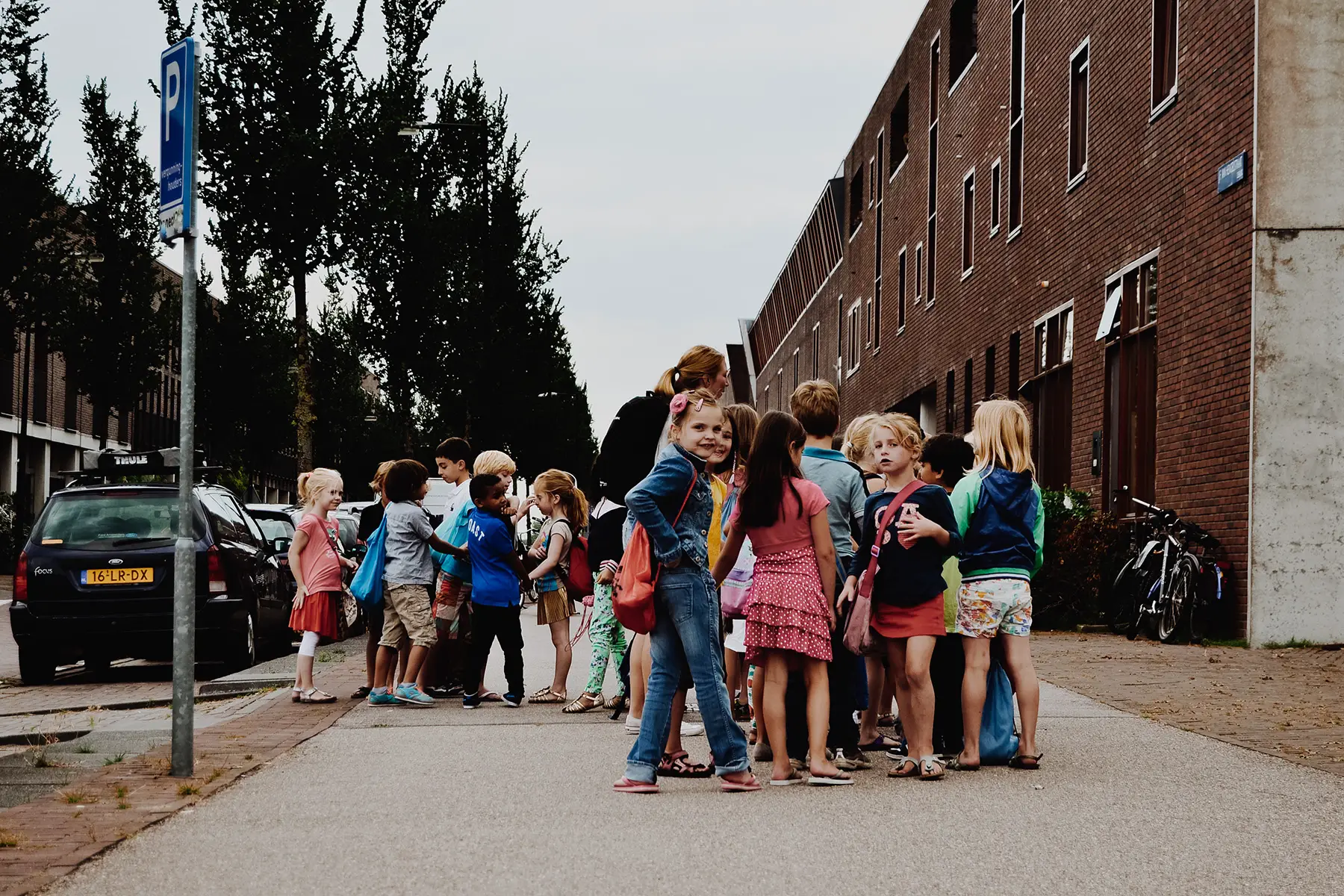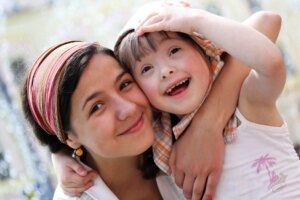Preschools and daycare centers in the Netherlands don’t only provide valuable childcare, but they’re also a fantastic way to help you and your children prepare for formal education.
This article will help you decide which option is best for your family and how to enroll with your chosen provider. Daycares and preschools in the Netherlands can be costly. It is best to determine all the expenses and research the available subsidies to ensure you can make a well-informed decision.
Navigate the Dutch preschool and daycare system with the following topics:
- Childcare in the Netherlands
- Types of daycare and preschools in the Netherlands
- What is a preschool (peuterspeelzaal)?
- What is a parent-run crèche ( ouderparticipatiecrèche ) ?
- What are playgroups (speelinloop)?
- International daycare and preschool in the Netherlands
- Other childcare options in the Netherlands
- Transitioning from daycare to ‘big school’
- General tips for daycare in the Netherlands
- Useful resources
Partou
Looking for childcare? Partou encourages children to play and develop. Each in their own way and at their own pace. With challenging activities, personal attention, and a lot of fun with peers. Almere, Amstelveen, Amsterdam, Breda, Eindhoven, The Hague, Rijswijk, Rotterdam, Utrecht… there’s always a Partou location close by. Discover Partou.
Childcare in the Netherlands
In the Lowcountry, children can access free primary school education from the day they turn four. Before that — while not compulsory — most families opt to send their children to daycare or preschool.
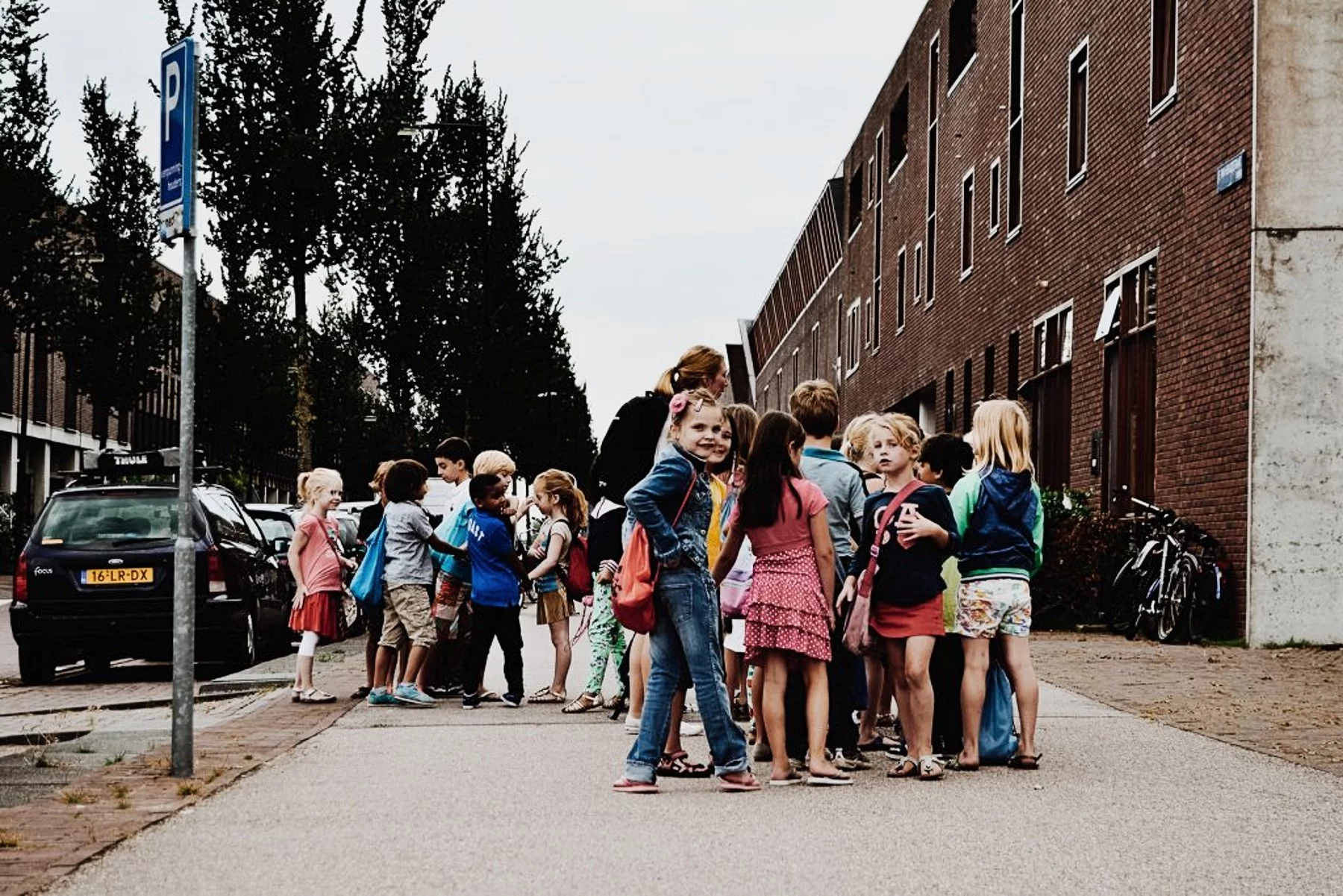
Children can typically enroll part-time at preschool (peuterspeelzaal) from 2 to 2.5. Daycare centers (kinderdagverblijf or kinderdagopvang) offer longer hours of care and cater to children from birth until they start school at four.
Childcare providers in the Netherlands are usually private entities charging hourly fees for their services. In most cases, the government offers income-assessed subsidies that are designed to keep childcare affordable. Although the costs of Dutch childcare appear to be higher than the European average, once you factor in all the benefits, the prices are comparable.
Children identified with developmental delays can receive a voor- en vroegschoolse educatie (VVE), which entitles them to a certain number of extra preschool hours to receive more lessons.
Types of daycare and preschools in the Netherlands
The Netherlands has many childcare options available for children under four:
- Daycare (kinderdagverblijf or kinderdagopvang) – childcare centers for children from 0–4. The opening hours usually mirror the working day, making it ideal for working families
- Preschool (peuterspeelzaal) – essentially the same as a daycare, but children usually go for half days instead of full days
- Kindergarden (kleuterklas) – preschools for children aged three to four where children learn to socialize through play. Children attend morning or afternoon sessions between one to four times a week, depending on school policies and availability.
- Parent-run crèches (ouderparticipatiecrèche’s) – unique, parent-run daycare centers where participating parents look after each other’s children on a rotating schedule
- Playgroups (speelinloop) – playgroups for children under three. Parents can chat while children play.
- International daycare – bilingual daycare centers catering specifically to international families
- International preschools – dedicated English-language preschools for children aged 2.5–4
- International schools with early-years provisions – nursery schools within international school settings for children aged 2–3 and above
What is a daycare (kinderdagverblijf or kinderdagopvang)?
Dutch daycare centers provide professional care for children from 0 to 4 years old. They are ideal for working families as the hours mirror the working day. Some centers offer half-day or occasional out-of-hours care. Parents working irregular hours can opt for a 24-uurs kinderopvang, which provides flexible care the entire day and night.
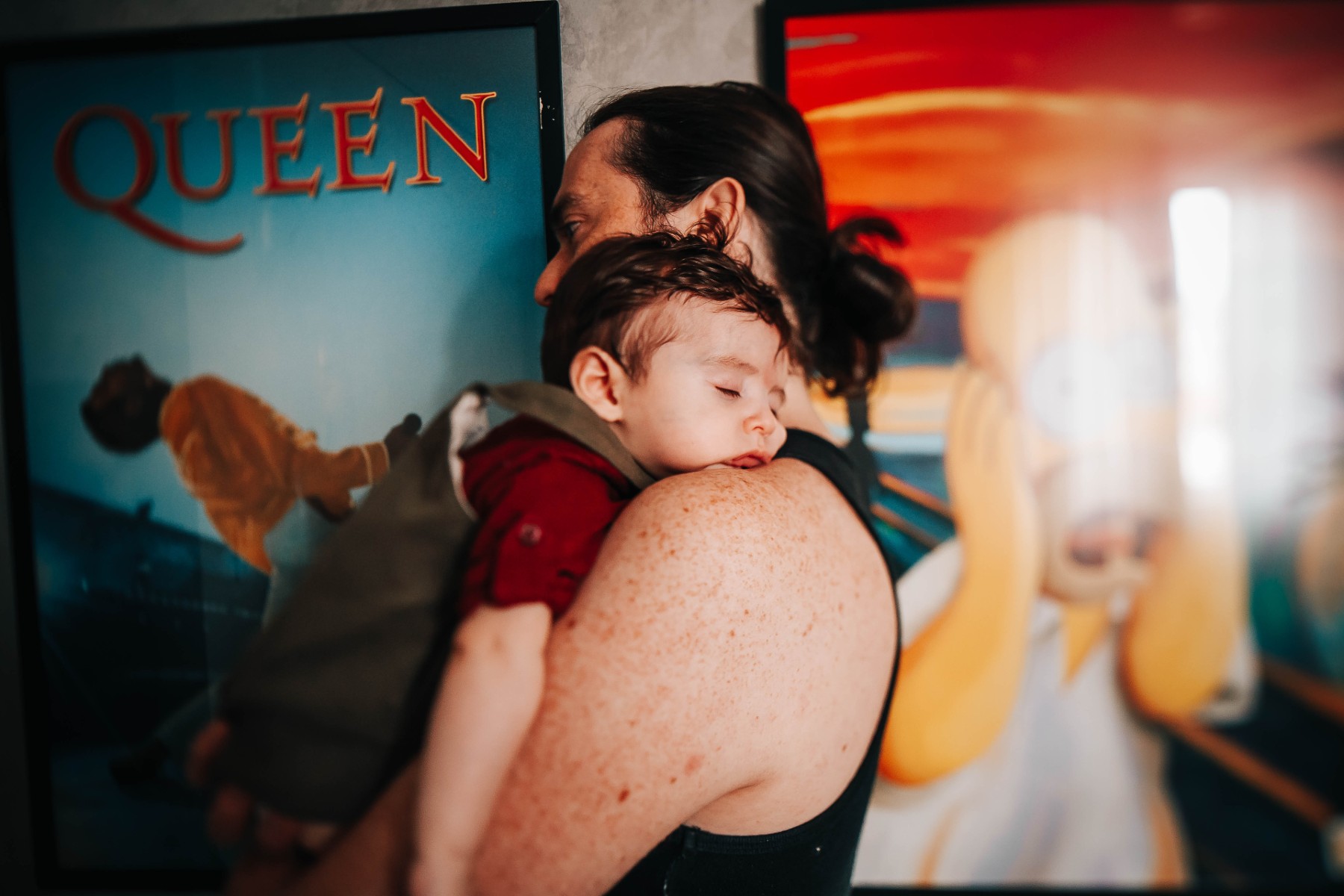
Daycares are well-regulated in the Netherlands. They need approval from the local municipality (gemeente) and must pass government inspections. There are national professional standards for staff, and all daycare employees require a certificate of good conduct for individuals (verklaring omtrent het gedrag – VOG NP).
Daycare aims to provide essential childcare and early education and teach children to socialize through play. Daycare centers must have an educational policy plan and employ a specialist social worker.
What do children do at daycare?
Most daycare centers operate from 07:00 or 08:00 to 17:00 or 18:00. While at daycare, all of the child’s needs are met — from nap time and diaper changes to snack time and meals.
Groups are split horizontally by age or vertically in mixed-age groups. In horizontal groups, your child can learn from and play with children of the same age. In vertical groups, your child can learn from and play with older and younger children.
Depending on the opening hours, a typical day at daycare can look like this:
| Time | Activity |
| 07:30 | Drop off and free play |
| 09:00 | Starting the day with songs and fruit |
| 09:30 | Activity (related to a monthly theme) or outdoor play |
| 10:30 | Free play |
| 11:00 | Outdoor play |
| 11:30 | Lunch |
| 12:30 | Naptime or reading, depending on their age |
| 14:00 | Waking up and free play |
| 14:30 | Activity (related to a monthly theme) or free play, depending on their age |
| 15:00 | Snack time |
| 15:30 | Free play |
| 17:00 | Pick up |
Finding and choosing a daycare
Dutch parents often go back to work soon after their child is born. That’s why waiting lists for daycares can be quite long. It’s not unheard of to wait for up to 18 months. Subsequently, parents in the Netherlands often register their children for daycare as soon as they find out they are pregnant.
Parents can use the National Childcare and Pre-school Register (Landelijk Register Kinderopvang en Peuterspeelzalen – LRKP) to find a suitable daycare. It’s worth visiting the facility in person before enrolling your child. During these visits, parents can get a feel for the environment and learn about the schedule and educational policies. Unlike schools, there are no geographical restrictions for applying to a daycare.
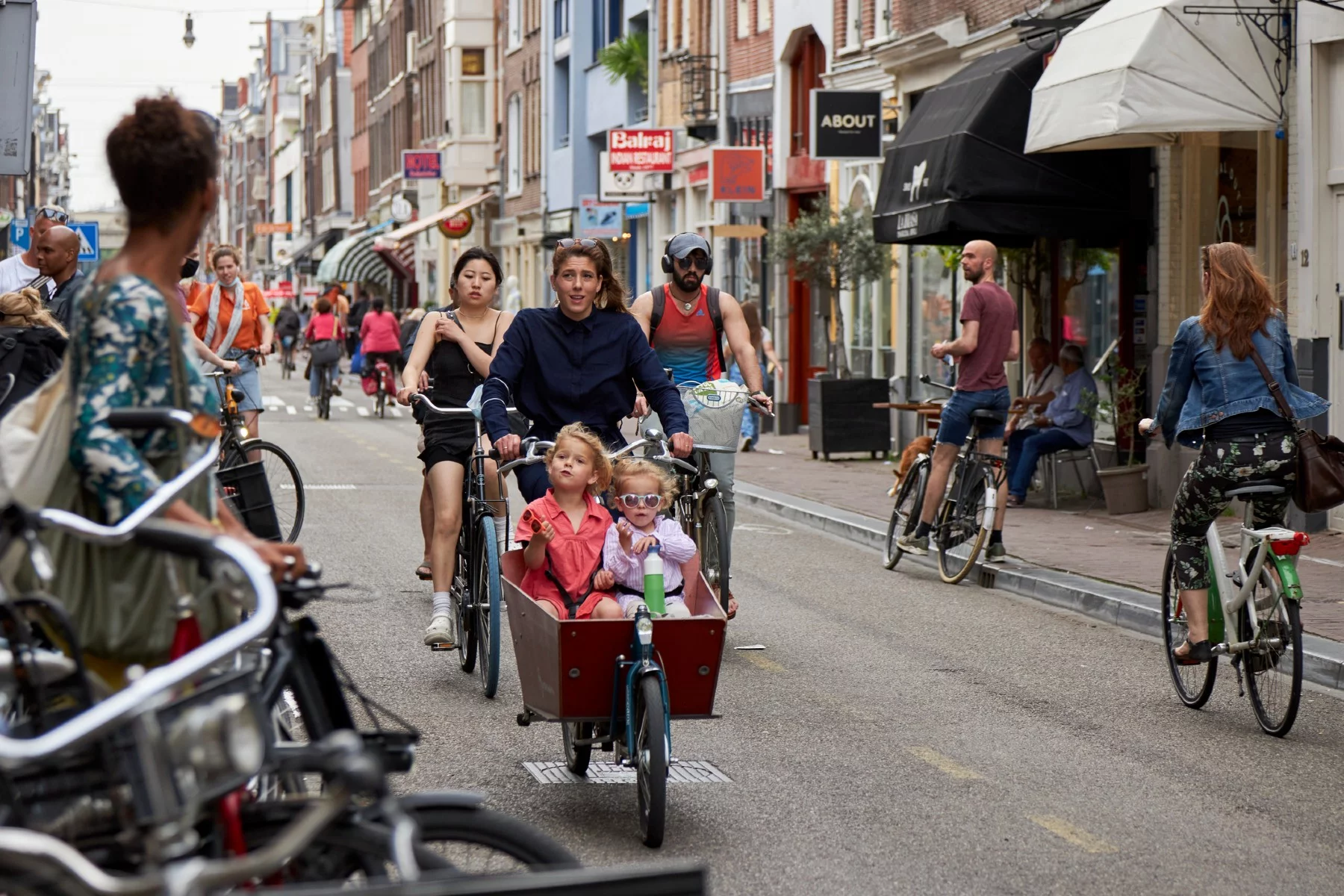
Parents should consider the following when choosing a daycare:
- Proximity to home
- Language used
- Fees
- Outdoor space and facilities
- Opening times
- Flexibility in terms of extra hours or days
- Food options (e.g., hot or cold meals, organic provisions)
- Teaching style (e.g., Montessori, Dalton, religious, non-religious)
- If and how the staff transport children to playgrounds and off-site outdoor spaces
The primary language of most daycares in the Netherlands is Dutch. However, parents can opt for international daycare centers, which the National Childcare Register also lists.
How to enrol in daycare in the Netherlands
Typically, working mothers in the Netherlands have 10–12 weeks of paid maternity leave following the birth of their baby. As waiting lists for daycare sometimes exceed this time, most parents register during their pregnancy to guarantee their child gets a place in time. Moreover, to maximize the chance of securing a spot, you can apply to more than one daycare.
When registering, parents will need to provide their BSN number (Burgerservicenummer), as well as that of their child. This is your social security or unique identification number. You will also need to sign a contract agreeing to set hours and fees and provide your address and bank details.
Costs of daycare in the Netherlands
As a parent in the Netherlands, you can apply for several types of child benefits and allowances to help with the costs of raising a child, schooling, and childcare. In two-parent families, both parents must be working or in education to be eligible for childcare allowances.
If you want to apply for childcare benefits, it’s important to write down the registration number of the daycare center. You will need to provide this during your application with the Dutch Tax and Customs Administration (Belastingdienst).
The hourly cost of daycare in 2022 is typically between €8.50 and €11 per hour. The exact fee varies between providers. This handy online tool can help determine your daycare expenses.
What is a preschool (peuterspeelzaal)?
Between the ages of two and four, children in the Netherlands can attend a Dutch preschool for three to five half-days per week. Dutch daycares and preschools are practically the same, although the opening hours of preschools are shorter. If a child attends daycare, they usually don’t go to preschool and vice versa.
At preschool, children learn to socialize through play. The preschool toys and educational materials are similar to those found in Dutch primary schools.

For many children, preschool can help to ease the transition to regular school due to the similarity of the environment and familiar faces. These are often located near Dutch primary schools (basischool) or even on the school premises.
The Municipal Health Services (Gemeentelijke Gezondheidsdienst, GGD) and the Dutch Inspectorate of Education (Onderwijsinspectie) regularly inspect preschools. Preschool staff requires childcare qualifications. There must be at least two qualified staff members per group, and the maximum group size is 16 children.
As this form of school must be available for every child in the Netherlands, families can apply for childcare allowances. This includes families with stay-at-home parents who don’t necessarily need childcare but still want their children to socialize and gain the necessary skills for primary school.
Preschool voor- en vroegschoolse educate (VVE) indication
According to the Dutch government, over 15% of children in the Netherlands are at risk of developing a language delay. Each municipality is responsible for identifying these children by assessing their development and looking at factors such as parental education and the spoken language at home.
When appropriate, children will receive a VVE indication during routine health checks at the child health center (consultatiebureau). The VVE stands for voor- en vroegschoolse educatie, an early childhood education program focusing on language skills and cognitive, physical, and social-emotional development.
With a VVE indication, children get extra lessons to catch up on their milestones. In this case, preschool is largely free, though a parent contribution might be required. Although many expat children don’t speak Dutch at home, this does not guarantee a VVE indication, as children tend to pick up the language quickly once they start school.
What do children do at preschool?
Preschool hours are usually shorter than a full daycare or school day. Days normally begin around 08:30 and end between 12:30 and 13:30. Some preschools also run an afternoon schedule.

The preschool will provide a light meal or the parents will send a packed lunch with their child, if they are still at the facility during luchtime.
Below is a typical schedule of a preschool day:
| Time | Activity |
| 08:20 | Drop off |
| 08:30 | Circle time (e.g., songs, discussion of the previous day and the day ahead, and introduction to the monthly theme) |
| 08:50 | Activity (related to a monthly theme) or free play |
| 09:15 | Activity (associated with a monthly theme) or storytime |
| 09:30 | Circle time and snack time |
| 10:00 | Free play |
| 10:30 | Outdoor play or physical activity in-doors |
| 11:15 | Reading or songs |
| 11:45 | Lunch |
| 12:30 | Pick up |
Parents usually receive an annual report on their child’s progress. Children are not formally assessed for educational targets, but staff will monitor their development. If they identify any issues, they will communicate this to the parents, who can request additional support.
When children turn four and move on to primary education, most preschools will share their insights into the child’s development, background, personality, and likes or dislikes, with the new school.
Finding and choosing a preschool in the Netherlands
Some preschools have an open day so that parents can visit without an appointment. Other times, parents have to contact the school directly to arrange a visit.
Most municipalities have a school finder (schoolwijzer) on their website where parents can search for a preschool by postal code. You can also use the National Childcare Register to find approved preschools and read inspection reports.
Preschools in the Netherlands are almost exclusively Dutch-language environments. Expats seeking an English-language preschool should consider a dedicated international preschool or nursery (often attached to an international school).
How to enrol in preschool in the Netherlands
Parents can enroll their children at a preschool on or after their first birthday. The school will contact you in the lead-up to your child’s second birthday to discuss the placement and arrange a starting date.

It’s worthwhile to visit a few preschools before applying. Preschools don’t have the huge waiting lists that daycare centers have, but you might still have to wait a few weeks (occasionally months) before getting a place. If your child does not secure a spot at your requested time, you can choose to enlist at another preschool or wait for a space to open up.
When registering, you will need your BSN number, as well as that of your child. You will also need to sign a contract and provide your address and bank details.
Costs of preschool in the Netherlands
Each preschool determines its hourly rate, although it is typically between €8.50 and €11. Families where both parents work (or single-parent working families) can claim childcare benefits (kinderopvangtoeslag) toward preschool fees. You can apply for these allowances directly from the Belastingdienst.
If you are not eligible for the government’s childcare benefit, you might qualify for a municipal subsidy. In that case, the preschool will ask for proof of income and apply directly to the municipality on your behalf. The municipality pays the subsidy to the preschool, and you will receive a bill for any of the remaining fees.
What is a parent-run crèche (ouderparticipatiecrèche)?
The Netherlands has seven unique parent-run crèches, known collectively as ouderparticipatiecrèche’s (OPCs). Five of these are in Utrecht, and two are in Amsterdam.
At these centers, parents take turns caring for each other’s children. Each parent is present at the crèche for half a day. In return, their child can attend several half days when other parents care for the group.
Parents are volunteering their time (i.e., unpaid) but childcare fees still apply. However, these fees are considerably lower than traditional daycare costs, and you will still be able to claim childcare allowances.
OPCs comply with the same regulations as other childcare providers. Although, there are two exceptions: parents don’t need any special childcare training, and supervision by two employees is not necessary when caring for a baby.
What are playgroups (speelinloop)?
A speelinloop is a drop-in playgroup for children under three.
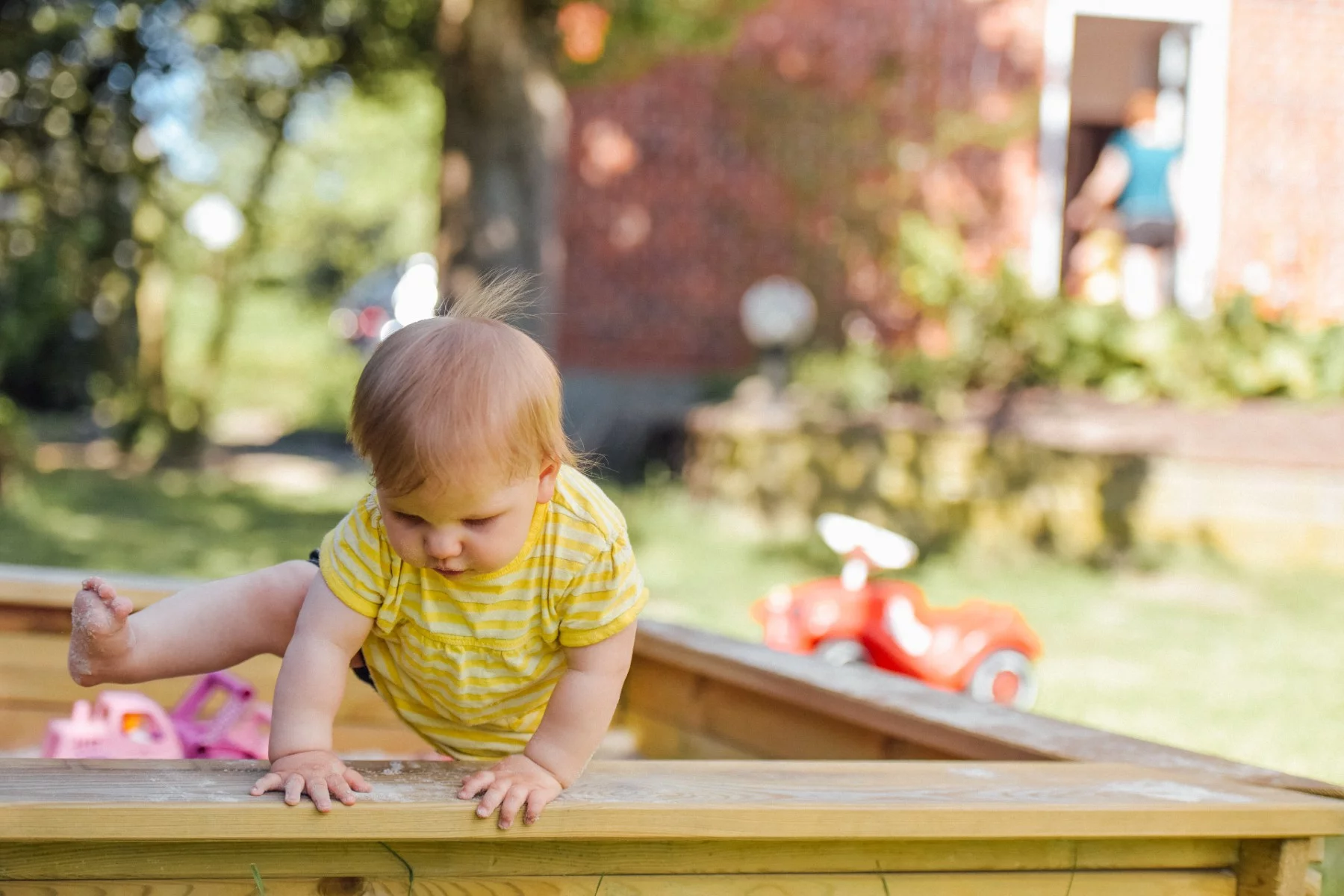
Cities with large expat populations also have international playgroups. Many churches and religious institutes run playgroups, most of which are open to the broader public. Parents can also sign up for playgroups that follow a specialized educational approach, such as Montessori, for example, The Montessori Village (Haarlem) and the Jacaranda Tree Montessori (Amsterdam).
They are an excellent way to meet local families and practice speaking Dutch in an informal setting. Playgroups that are organized or funded by the municipality have similar toys and equipment to preschools and can help prepare you and your child for the Dutch primary school experience.
Groups listed on municipal websites tend to be run by qualified staff, as are those following particular educational approaches (such as Waldorf or Montessori). Parents or volunteers are more likely to run church or community groups.
What do children do at a playgroup?
Playgroups typically last around two hours in the morning or afternoon. Free playgroups tend not to require parents to stay around, while paid playgroups can ask you to attend the entire session.
Most playgroups are informal, and children are free to choose what they want to do. In some cases, they set up a themed activity or craft table. Groups that offer snacks can encourage children to sit together for mealtime, and occasionally there can be special activities, such as musical performances or storytelling.
Finding a playgroup in the Netherlands
Parents can ask their child’s health center for contact details of local playgroups. Larger cities like Amsterdam might even have a playgroup directory on the municipal website.
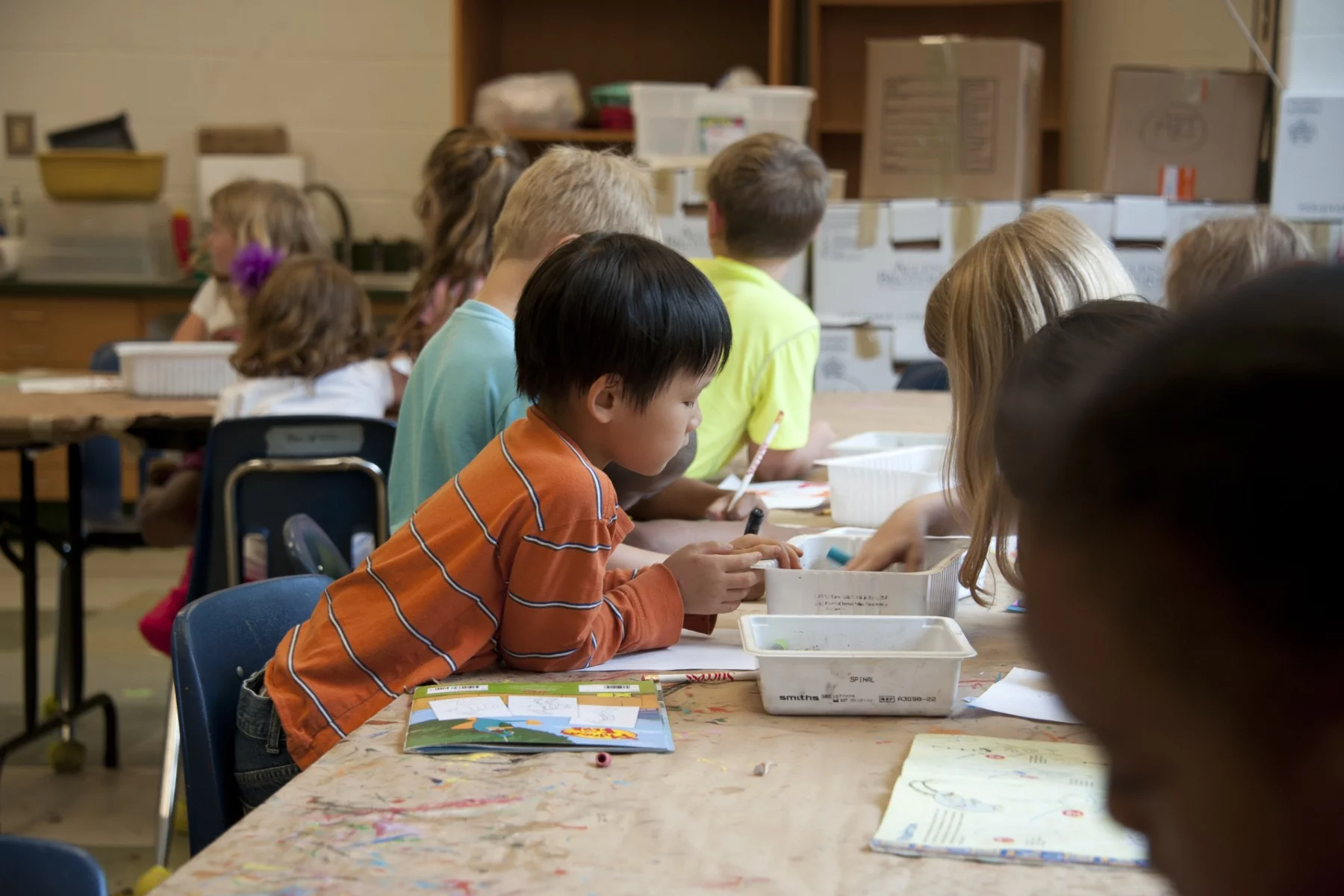
The Angloinfo website has a comprehensive list of international and English-language playgroups in and around Amsterdam, Leiden, the Hague (Den Haag), and Rotterdam.
To make sure their online information is up-to-date and avoid disappointment, you should always contact the playgroups before visiting.
Enrollment and fees for playgroups in the Netherlands
Specialized playgroups require you to enroll and pay for a fixed time beforehand. They tend to fill up fast, and you might need to place your child on a waiting list. Most playgroups, however, are free walk-in sessions, occasionally requesting a donation or piece of fruit to share among the children.
Childcare subsidies can only be used after one year and three months of the start of the playgroup.
International daycare and preschool in the Netherlands
Though privately run, international daycare centers must comply with the same regulations as Dutch childcare centers. Parents can use the National Childcare Register to find an approved facility.
International daycares cater to the specific needs of expat children. Most staff are bilingual and will teach in English and Dutch. These daycares tend to be more multicultural than their Dutch counterparts, which can be a deciding factor for international families. They also have experience preparing children for progression into Dutch and international schooling.
International daycare centers in the Netherlands include:
Dedicated international preschools are hard to find in the Netherlands and certainly not present in all municipalities (especially up north). Parents unable to find a local international preschool might consider an international school with a nursery or early-year provisions.
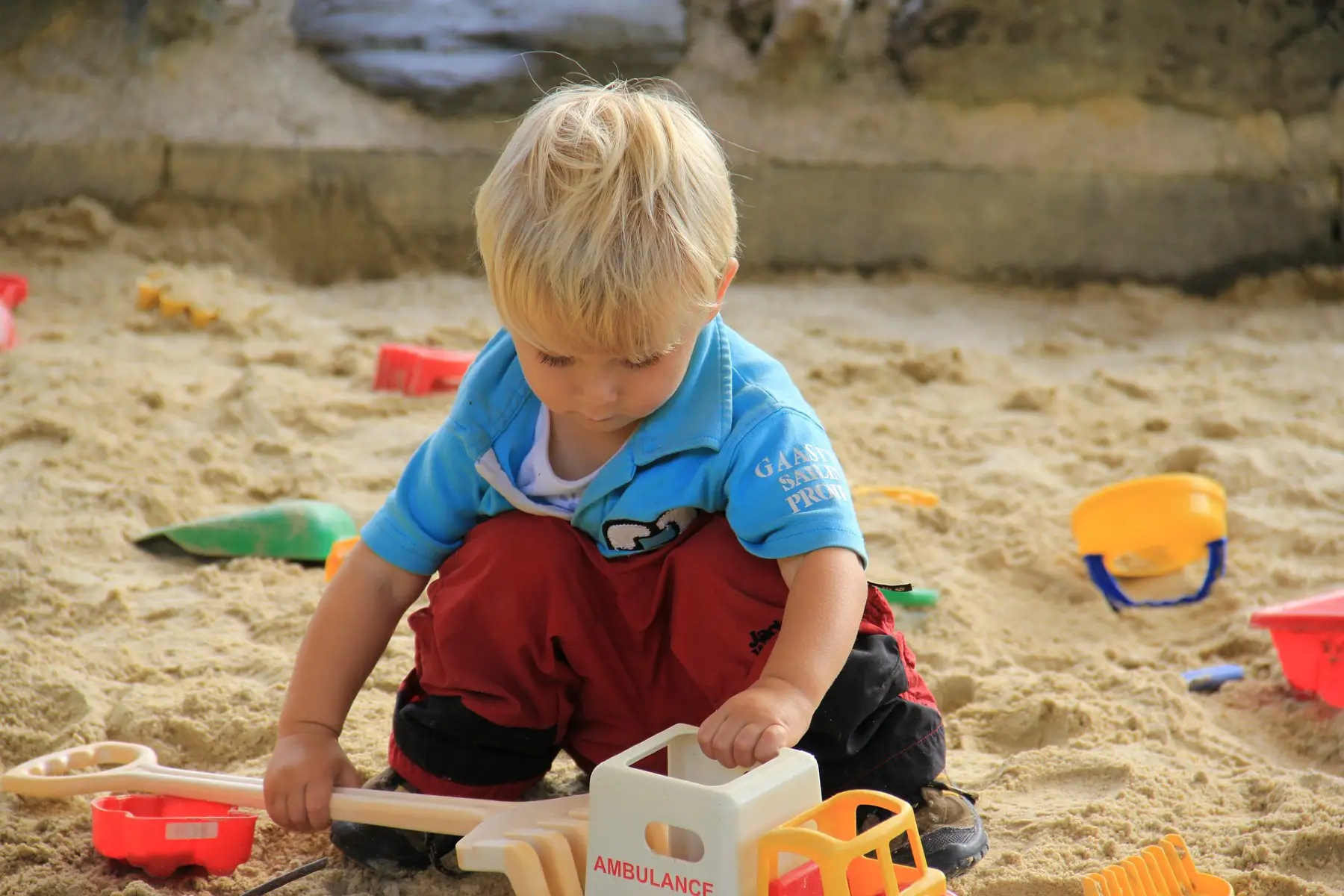
Typically, dedicated international preschools offer care from 2 to 4. Beginning their early-year education at a dedicated international preschool ensures a smooth transition for international children. They can continue their education in an international or English-speaking environment.
Enrollment and fees for international daycares
Parents can enroll their child at an international daycare, preschool, or nursery by approaching the care facility directly. It is recommended to register early to ensure your child gets a place in time.
Of course, eligible families can apply for childcare allowance. However, as most international preschools will not deliver the Dutch preschool curriculum, families opting for these preschools might not be able to receive municipal subsidies.
International schools with early-years provisions
Many international schools in the Netherlands accept children aged two or three in their early-years provisions classes. Classes may be full or part-time and usually follow an overseas early-years curriculum.
Children attending international schools pay school fees even when they are under the age of four. Parents cannot use childcare allowance and municipal subsidies for international school fees.
International schools with nursery or early-years provisions include:
Other childcare options in the Netherlands
Alternative childcare options for younger children in the Netherlands include:
- Childminders (gastouders) – licensed carers who look after children of all ages. Childminders can care for up to six children simultaneously, either at their home or in a care center.
- Nannies – professional, qualified childcare providers employed by a family to provide their children with exclusive care
- Au pairs – a young person who lives with and provides support to a host family in exchange for room and board
- Babysitters (oppas) – teenagers, neighbors, friends, or family who provide informal, ad-hoc childcare or search on online portals like Charly Cares or Sitley
- Crèches – some workplaces provide crèches exclusively for their employees. These operate in the same way as normal Dutch daycares.
- Buurtgezinnen – a social initiative connecting neighborhood families to help each other raise their children, especially when one family is experiencing difficulty
Transitioning from daycare to ‘big school’
Children in the Netherlands can start primary school on their fourth birthday. Once they turn five, attendance is mandatory (leerplicht).
Children pick up many skills they need for regular school at daycare and preschool, such as listening, following instructions, and socializing with other children.
Naturally, daycares focus more on childcare than educational development as they care for children from birth. However, when the time approaches for children to go to primary school, most daycares explain and prepare the children for the significant change.
At preschool, the objective is to prepare children for school emotionally, developmentally, and physically. This is more central to their purpose than providing childcare. Many preschools are near or on the same site as a primary school, so children will already feel comfortable in the school environment.
It’s normal for childcare staff to discuss a child’s development and school readiness with parents. Staff will also share their knowledge about the enrollment process and the various teaching methods offered by the schools in their vicinity.
General tips for daycare in the Netherlands
According to Dutch cultural tradition, treating others on your birthday brings good luck. That’s why it’s customary — and socially mandatory — to take small treats (tractaties) for the class and the teachers on your child’s birthday. Common treats include fruit, cakes, raisins, or chocolate bars. Many childcare centers ask that parents opt for healthy treats with little to no sugar.
Children also give teachers and carers gifts on the last day of school and on Teacher’s Day (Dag van de Leraar) on 5 October.
When sending your child to daycare or preschool, it’s a good idea to label their clothing and leave a spare set of clothes for your child at the childcare center.
Useful resources
- National Childcare Register – register of daycares and preschools in the Netherlands
- Government.nl – website of the Dutch government with resources and information
- Belastingdienst.nl – website of the Dutch Tax and Customs Administration
- Den Haag.nl – The Hague municipality website with their preschool guide
- Amsterdam.nl – Amsterdam municipality website with their preschool guide
- Utrecht.nl – Utrecht municipality website with their preschool guide


